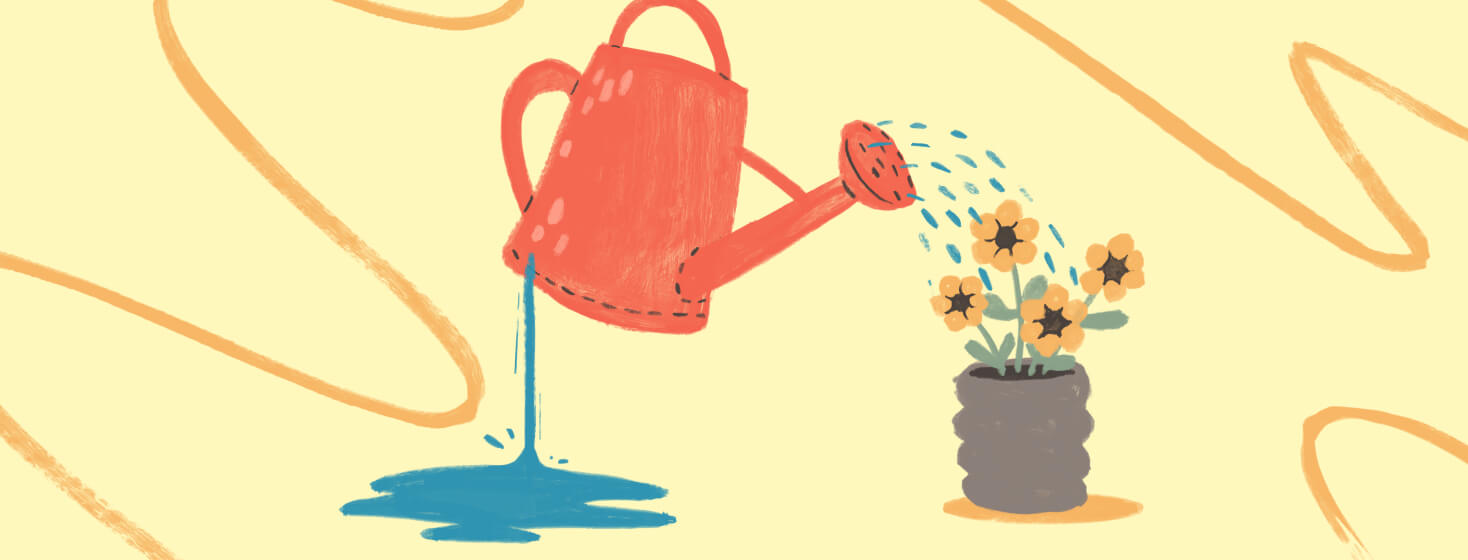Compassion Fatigue as a Peer Supporter
Some of us may actually work in the field of mental health as either peer supporters or in another another capacity using our lived experience of a diagnosis of schizophrenia or other mental health diagnosis. Something that can impact us is compassion fatigue.
Compassion fatigue is simply the repercussions of caring for others (including their mental and emotional pain) as a direct result of wanting to relieve or help make that pain disappear or get better.
Peer support feels good
In the beginning of working in peer support, you may feel enthusiastic or excited about the prospect of helping others. It can be a wonderfully powerful tool using your own lived experience to help others find the level of recovery that they are seeking!
But over time due to dealing with vicarious trauma and your own battles with your diagnosis, you may feel yourself detaching from your work and the folx that you support.
Starting to feel compassion fatigue
You may find yourself not caring about the individuals that you serve or feeling a certain way about their progress. You may grow a certain amount of apathy in the way you feel about them or maybe even feel like you don't care at all. I can almost guarantee that this is not the case.
I would be willing to bet it's because you have cared too much for too long and that the compassion and empathy that you are consistently giving out is just way too much for anyone to handle.
Peer support helps heal
In peer support, the most important element of the peer support bond is the relationship between the peer and the individual. When that bond is strong, it's virtually a unique healing entity that has the power to lead someone on the pathway to recovery and to change the way they see the world.
It has the power to create a sense of security and trust and it may be one of the first healthy relationships in the person's life. It has the power to heal and to repair that which may be interpreted as "broken."
However, it also could drain the peer support specialist if they are not careful.
But don't put too much pressure on yourself
Before you know it, you’re taking work home with you and losing sleep over the thoughts of your individuals. You're thinking about their issues at 1 a.m. and not knowing why you're waking up in the middle of the night. You might start to go out of your way to avoid that person, or even greater, the whole thought of work.
This is the reality of compassion fatigue and it's very real to those in the helping profession. We're literally surrounded by stories of trauma and trouble every day, and we constantly meet those stories with a sense of compassion and empathy. That will break us down over time unless we have those good boundaries and are taking care of ourselves in a way that's not only sustaining for us, but for our recovery.
Help with healthy boundaries
Peer supporters have a unique perspective. We work everyday to better the lives of those we serve, and we also use so much of ourselves and our stories to hopefully make an impact on the recovery of those who are struggling.
We build relationships which ultimately become the vehicle for change in the lives of those we work with. We give selflessly to help others, sometimes to the detriment of our own wellness. Peer support is difficult work which comes with a strong emotional component.
Unless we are addressing that emotional component, it could lead to burnout. When you work in the field for a long time, it can even leave you wondering why you even do this work. However, when we think about peer support, we think about relationship and recovery. If we keep coming back to those two elements, we may be able to re-think why we do this work.
It's OK if peer support feels too daunting
Working with any disability can be a tough go sometimes. However, when we have schizophrenia and work with folx with that same diagnosis, it can be daunting. Especially when not only our peers are struggling, but we are struggling too.
We can't be well 100% of the time, and we can’t be asked to be saviors to those who maybe aren't in a place to ask for the help that they might need. Remember that recovery isn't linear and looks different for everyone!
Taking care of yourself
It's so important that we work hard at taking care of ourselves not only in work, but outside of work. Remember to seek regular and consistent supervision and do some self-examination of your work style and look at what is working and what is not.
Sometimes, we need a break from this work. We may need to take some time off, we may need to revisit why we entered this field in the first place, we may need to seek out some therapy for ourselves to investigate these tough questions with someone objective and neutral. Whatever works.
Your schizophrenia recovery comes first
Talk with people you trust. I can't stress how much doing co-reflection or group supervision can make a difference in perspective. But most importantly, remember that you come first and so does your recovery. Know yourself well and prioritize what you need to thrive.
